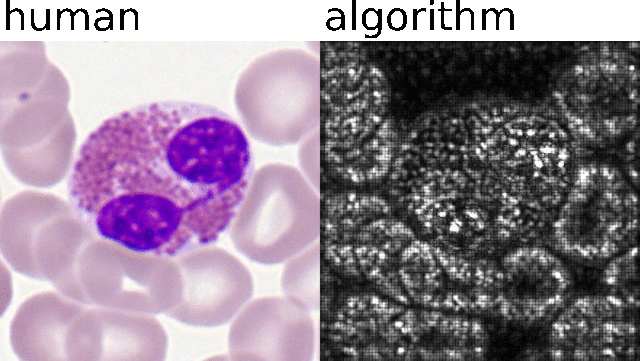Diagnosing hematologic malignancies still relies on the subjective visual assessment of images. Every day, cytologists and pathologists are confronted with rare diagnostic cells, huge image data sets, and heterogeneous disease manifestations. Despite the large amount of available patient data, and our profound knowlegede on know the blood system works, there is currently no model to predict disease dynamics from a blood smear or bone marrow puncture.
In his talk, he will discuss the tremendous progress in computer vision and artificial intelligence to address this biomedical challenge at the interface of digital pathology, machine learning, computer vision, and mathematical modelling.
About:
Dr. Carsten Marr is Deputy Head of Institute and Research Group Leader at Helmholtz Zentrum München and received his diploma in general physics from the Technische Universität München in 2002. He wrote his diploma thesis at the Max-Planck-Institute for Quantum Optics (Garching, Germany) and visited the Quantum Information and Quantum Optics Theory Group at Imperial College (London, UK) in 2003. In 2004, he received a PhD fellowship from the Technische Universität Darmstadt and joined the Bioinformatics Group there, working on dynamical processes on graphs and biological networks. He visited the Center for Complex Systems and Brain Sciences (Florida Atlantic University, USA) and Jacobs University Bremen (Germany) during his PhD. He received his PhD from Technische Universität Darmstadt in June 2007 and joined Jacobs University Bremen as a postdoctoral fellow, focusing on gene regulatory networks. In 2008 he joined the Helmholtz Zentrum München as a PostDoc in the Institute for Bioinformatics and Systems Biology working on the quantification, analysis, and modelling of stem cell data. In 2011, he worked on pluripotency and stochastic descriptions of gene expression at the University of Edinburgh with a stipend from the Deutsche Forschungsgemeinschaft DFG. Since 2013, he is deputy director and group leader at the Institute of Computational Biology. In 2017, he received the Erwin-Schrödinger Prize and the CSB2 Prize in Systems Biology for his interdisciplinary contributions to the quantification of single blood stem cells. In 2019, he received an ERC Consolidator Grant for establishing Computational Hematopathology.


